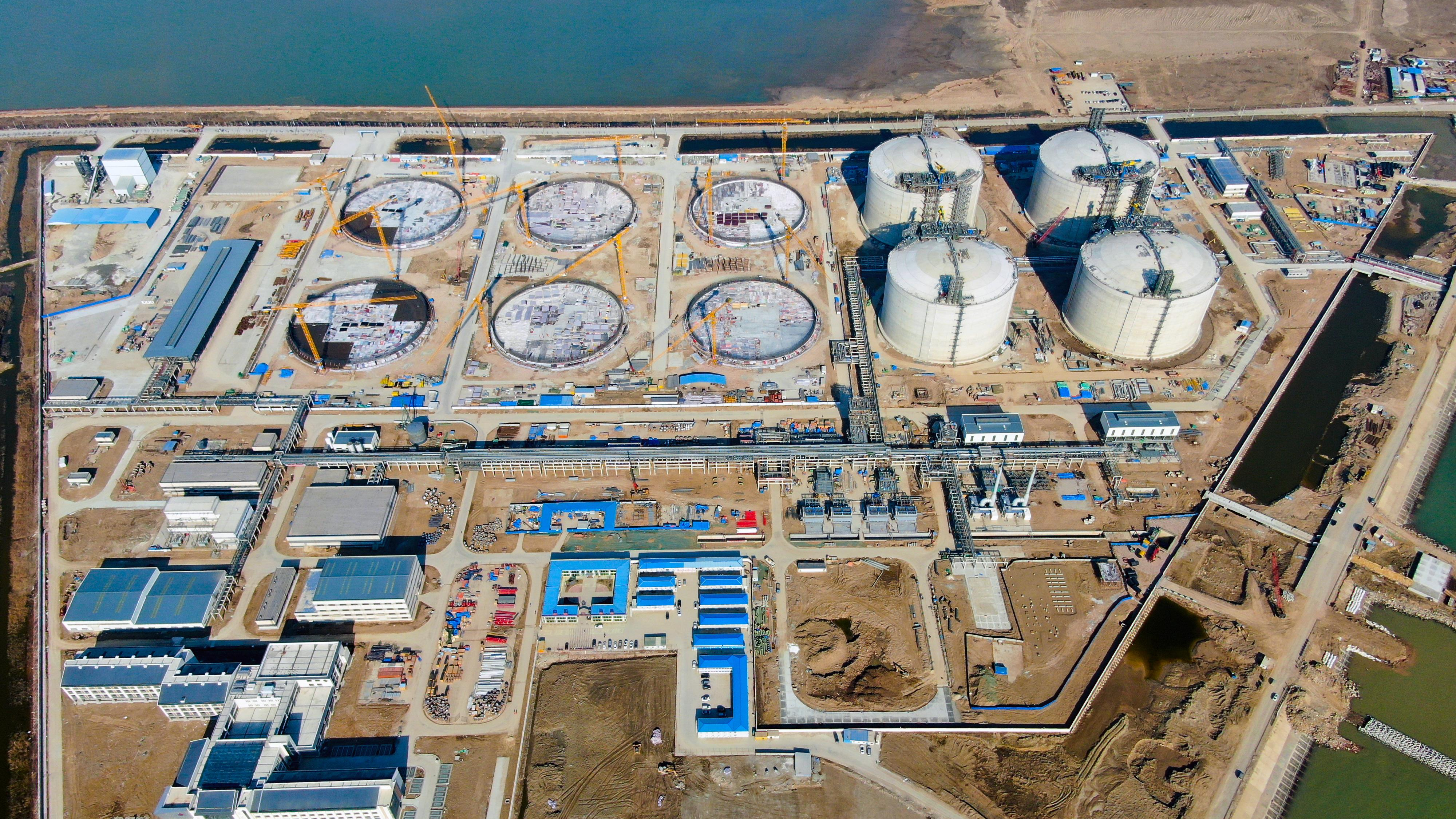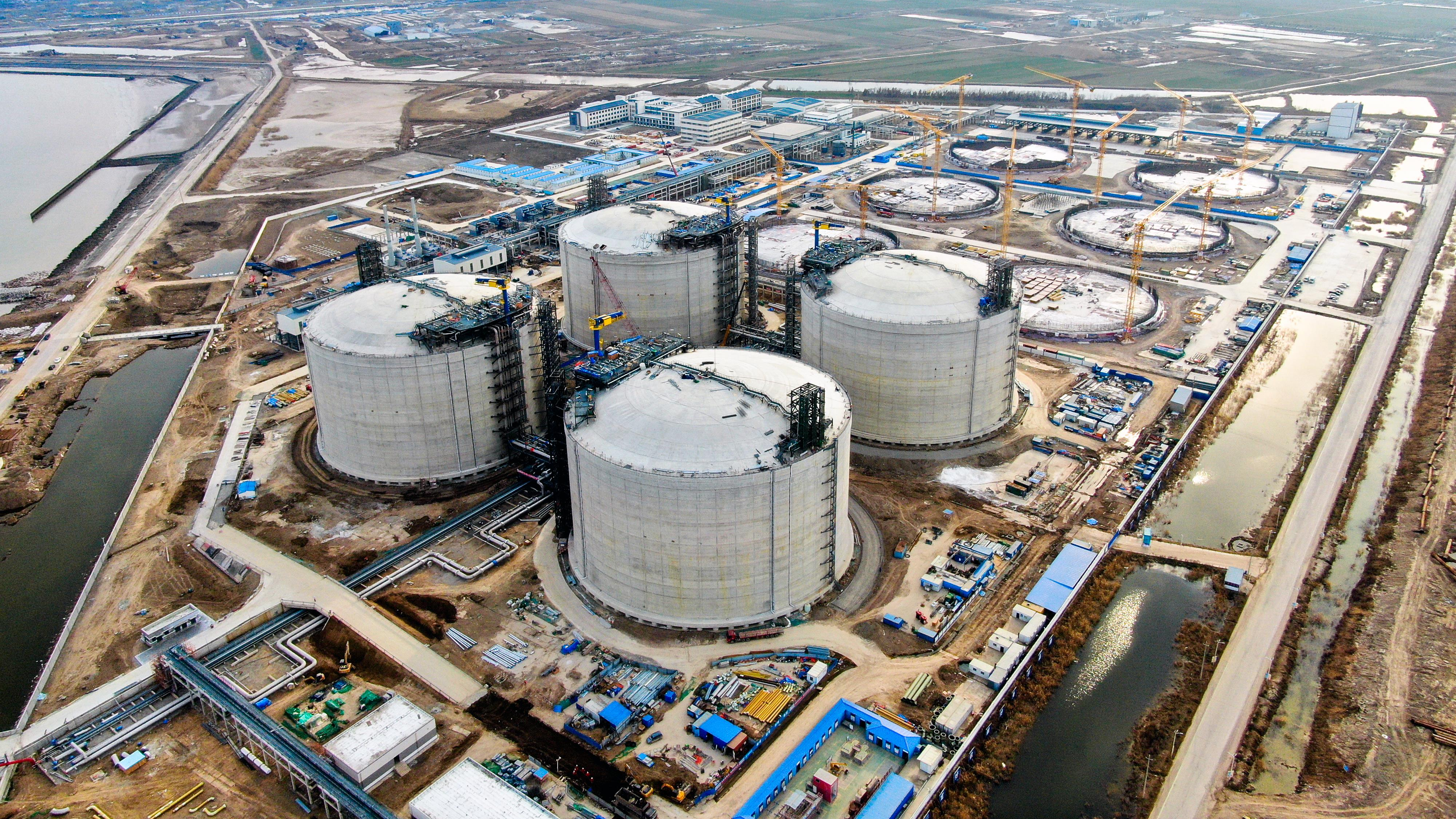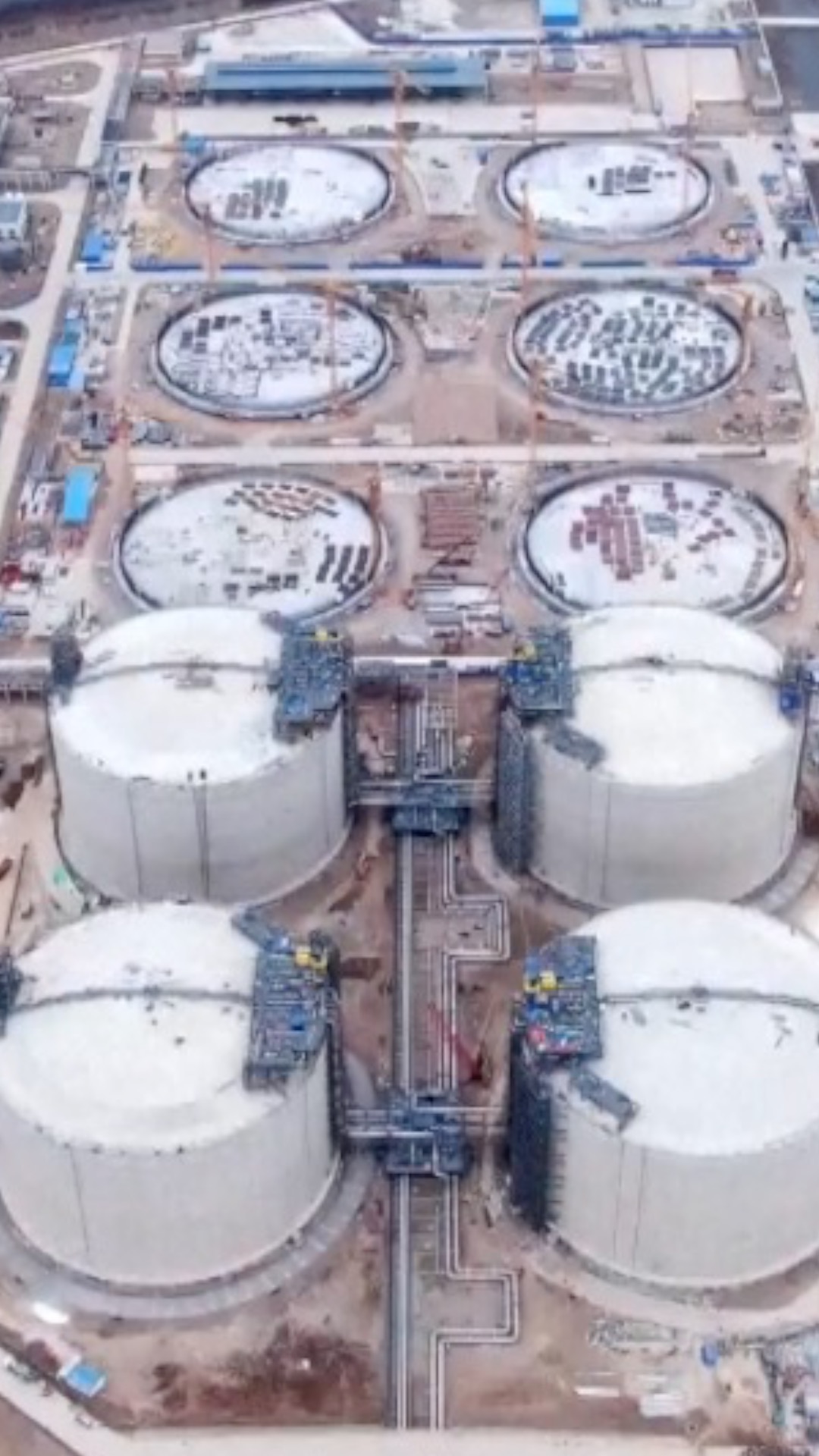
A bird view of Yancheng LNG Terminal project (or Binhai LNG Terminal) in Yancheng City of east China's Jiangsu Province. /CMG
A bird view of Yancheng LNG Terminal project (or Binhai LNG Terminal) in Yancheng City of east China's Jiangsu Province. /CMG
China National Offshore Oil Corporation (CNOOC), the leading liquefied natural gas (LNG) player in China, announced Sunday that it had completed concrete casting for the foundations of six world's largest LNG storage tanks in Yancheng City of east China's Jiangsu Province.

A bird view of Yancheng LNG Terminal project (or Binhai LNG Terminal) in Yancheng City of east China's Jiangsu Province. /CMG
A bird view of Yancheng LNG Terminal project (or Binhai LNG Terminal) in Yancheng City of east China's Jiangsu Province. /CMG
The six storage tanks of 270,000 cubic meters, the largest of their kind in the world, are designed and developed solely by China. Upon completion, each storage tank will be 60 meters high, equivalent to the height of the National Stadium (or the Bird's Nest), and will then be able to accommodate three Boeing 747 simultaneously.
As the six completed foundations, each of them has a diameter of 100.6 meters, with a total casting volume of 70,860 cubic meters, equivalent to the capacity of 30 standard Olympic swimming pools.
00:37

Unremitting pursuit of clean energy
Ren Jianxun, deputy manager of the Yancheng LNG Terminal project extension department, recalled how the project team struggled to fulfill the task with new technology.
Concerning low temperatures in winter, the team developed new technology to control temperature and prevent cracks in massive concrete. In this case, Ren and his team members eventually achieved intelligent and accurate temperature control by arranging temperature control sensors reasonably.
"We made innovation to adjust the concrete pouring area to be symmetrical scattered by 45 degrees, thus reducing the length of construction joints, effectively preventing cracks and improving construction quality," added Ren.
Li Feng, general manager of the project, introduced that the Yancheng LNG Terminal (or Binhai LNG Terminal) is capable of receiving, storing and externally transmitting liquefied natural gas, as well as utilizing cold energy, generating power and manufacturing hydrogen with natural gas.
"It is a comprehensive green and clean energy supply station as well as an important hub," Li further claimed.

A night view of construction of the Yancheng LNG Terminal project (or Binhai LNG Terminal) in Yancheng City of east China's Jiangsu Province. /CMG
A night view of construction of the Yancheng LNG Terminal project (or Binhai LNG Terminal) in Yancheng City of east China's Jiangsu Province. /CMG
Blueprint of Yancheng LNG Project
On the whole, the Yancheng LNG Terminal project involves the construction of 10 large-scale LNG storage tanks, including four completed ones of 220,000 cubic meters and six to-be-completed ones of 270,000 cubic meters.
As a key part of China's plan for natural gas production, supply, storage, marketing and connectivity system, the project will be put into operation in December 2023 with an annual LNG processing capacity of 5.44 million tonnes, reducing carbon dioxide emissions by 17.07 million tonnes and nitrogen oxides by 302,999 tonnes.
For the next step, CNOOC is mapping out the second phase of the Yancheng LNG project, aiming for another 10 LNG storage tanks of 270,000 cubic meters to increase an annual LNG receiving capacity of 9.07 million tonnes, so as to provide greater impetus for the green development of China's Yangtze River Economic Belt and further boost clean energy supply capacity to achieve China's carbon peak and neutrality targets.

